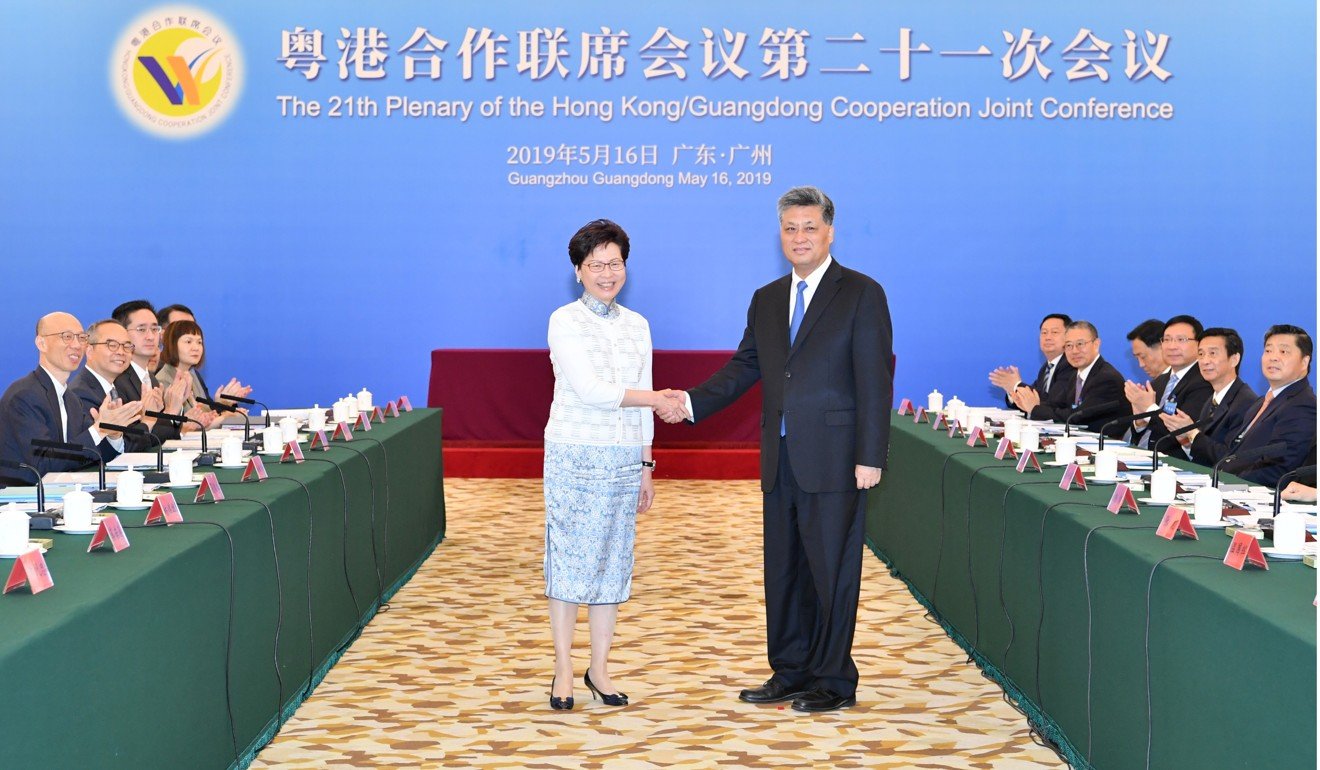
As US-China trade war intensifies, Hong Kong faces rough ride on its way to becoming hi-tech research hub for Beijing’s Greater Bay Area project
- Despite domestic troubles, city leader Carrie Lam managed to travel to bay area cities to seek more future cooperation
- US and China are now at war over more than just tariffs, and a key battlefield is technology
“Save for rainy days,” is an old Chinese saying that is a familiar concept in other cultures as well.
Government officials have regularly cited this philosophy for years when it comes to spending public funds, but they have been accused of crying wolf to justify their reluctance to roll out more cash relief measures in an affluent city with one of the worst wealth gaps in the world.
The bay area blueprint aims to transform the country’s two special administrative regions, Hong Kong and Macau, along with nine cities in the Pearl River Delta, into China’s Silicon Valley. Hong Kong, as one of the leading cities, is expected to play a role as its hi-tech research and financial hub.

The amended legislation would allow the transfer of fugitive criminal suspects between Hong Kong and those jurisdictions with which the city has no extradition agreement so far, including mainland China, Taiwan and Macau.
All her troubles, however, have not prevented Lam from building up momentum for Hong Kong to participate in the bay area project.
Ideally, Hong Kong should be able to take up a strong niche position as a hi-tech research hub when it comes to the division of roles among different cities in the Greater Bay Area.

Under the “one country, two systems” policy, Hong Kong enjoys a free flow of information and capital, and boasts of world-class universities which have close ties with many prestigious overseas counterparts, including those in the US.
The city can also tap into its technology-driven neighbour Shenzhen, which houses Chinese tech giant Tencent and Huawei, the world’s leading telecom company, in addition to other start-ups.
Show sincerity or cancel trade talks, Chinese state media tells US
But the US and China are now at war over more than just tariffs, and a key battlefield is technology.

Losing access to American-made components and chips is unfortunate for Huawei’s supply chain, but fortunately the tech giant has revealed it has had a plan B for years to develop its own technology – now is the time to roll it out to maintain the safety and supply of Huawei’s products for its worldwide clients.
As for Hong Kong, given the deteriorating China-US relationship and the snowballing controversy over the extradition bill, which is strongly opposed by the US and its Western allies, the city is in for the roughest of rides on its way to becoming the bay area’s tech hub.

